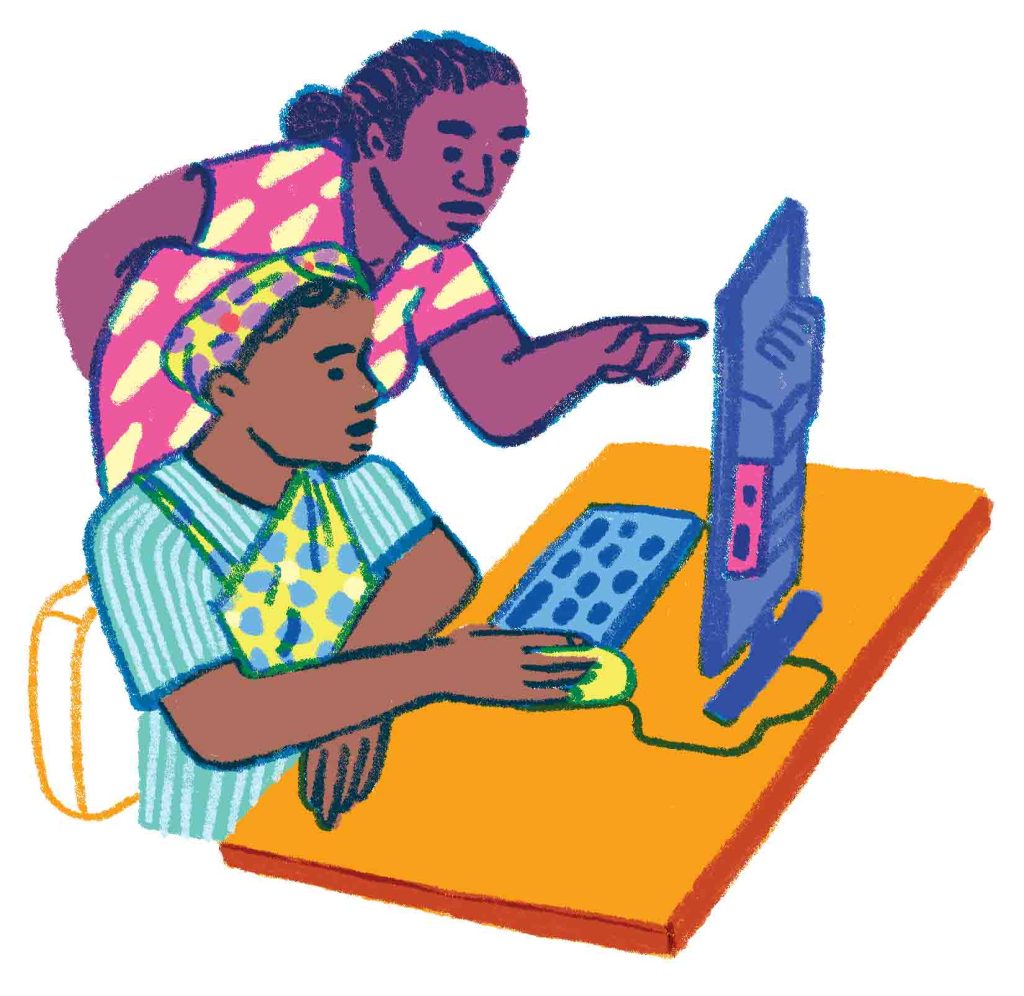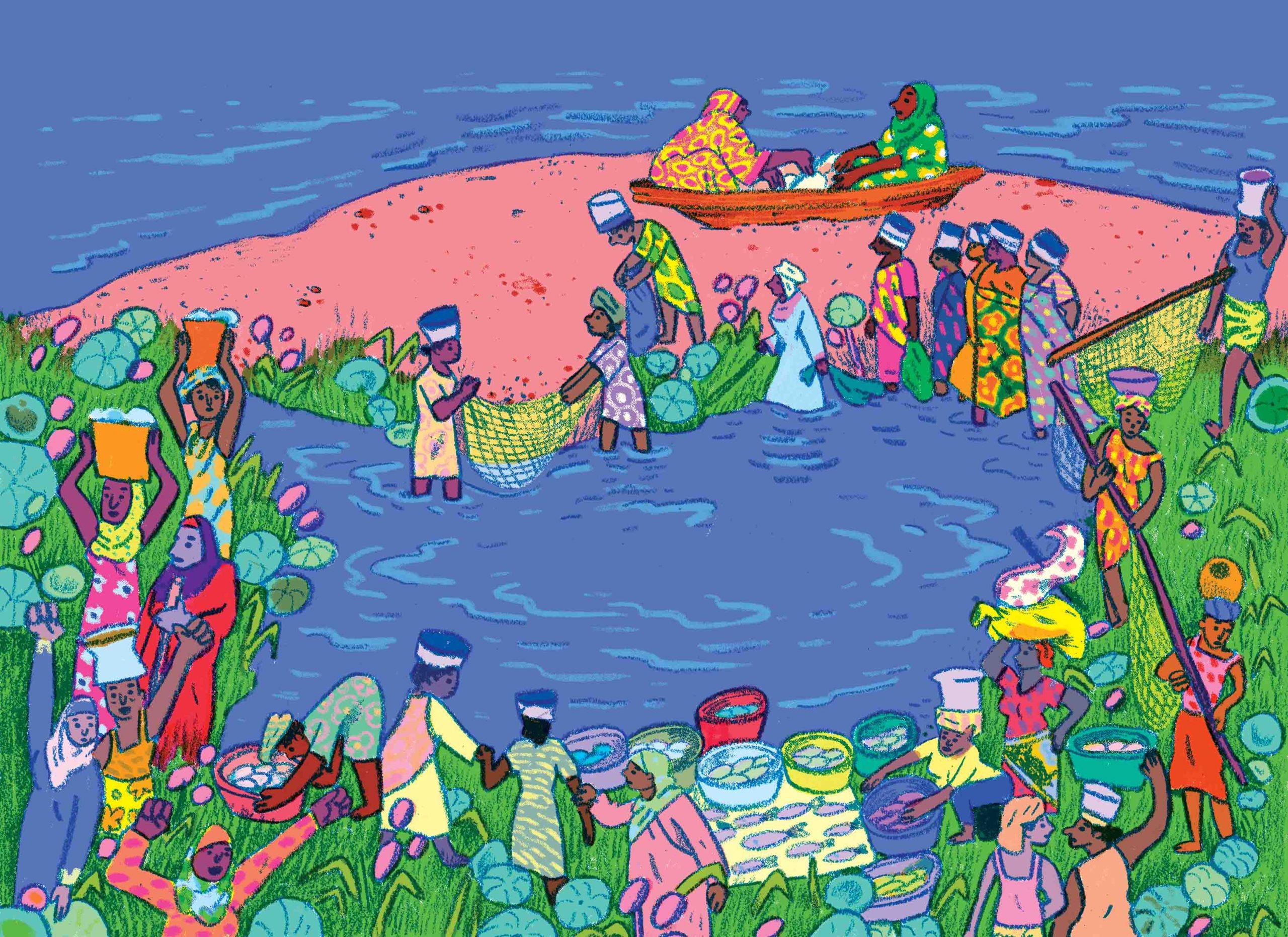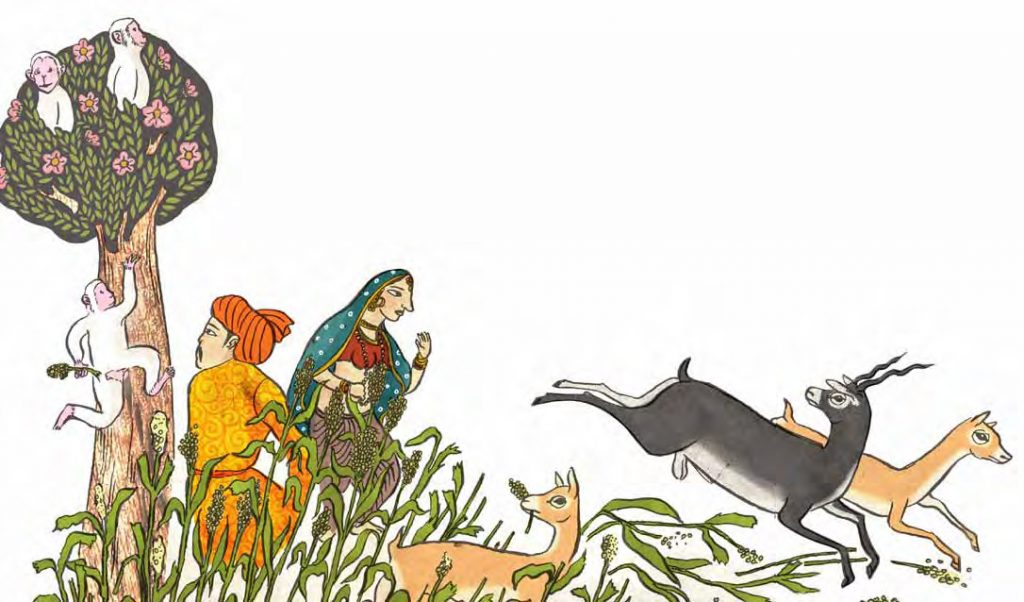The role of women in marine conservation in East Africa is critical, as they are disproportionately affected by the impacts of environmental degradation, and their contributions to marine conservation efforts are often overlooked. Female leadership is especially important in this context because women bring unique perspectives, experiences, and skills that are essential for the success of marine conservation initiatives. Women often have a deep knowledge of the natural resources in their local areas, which can be used to develop effec tive conservation strategies. They are also often skilled communicators and negotiators, which can be valuable in engaging local communities in conservation efforts and in advocating for policy change.
Here, we profile women who play various roles in marine conservation across East Africa, paving the way for impactful, transformative leadership.
Dr Fiona Wanjiku Moejes, CEO, Mawazo Institute, Kenya
The Mawazo Institute is a women-led African organisation based in Nairobi, Kenya supporting early career African women researchers as they work to find soluti ons to local and global development challenges. Member of the African Marine Conservation Leadership Programme, is a Women for the Environment Africa Fellow and sits on the Executive Committee of the International Society of Applied Phycology.
Prior to joining Mawazo, I served as both a senior marine research scientist (with a focus on applied microalgae and seaweed research) and a marine programme manager. During my time as programme manager at Dahari, I had the opportunity to lead community-led, research-based marine conservation efforts in the Comoros, where environmental degradation has had negative impacts on both the ecosystem and the communities that depend on it. Despite the limited resources available in the small East African island nation, ourteam at Dahari worked with the local fisher communities to support them in the management of their marine resources. One of my highlights was working with a fisherwomen’s association who were so passionate about protecting their natural resources and quickly became changemakers and leaders in their communities, helping them to live more sustainably with their marine ecosystem.
I see my role at Mawazo being complementary and a continuation to my previous work in the marine research and conservation space. I am building on my own experience and supporting the growth of the next generation of African women researchers, including those working in conservation.
African women researchers lack access to funding, mentorship and networks, and have to contend with gender-insensitive university policies, unequal domestic responsibilities and outright discrimination; all impacting their mental, emotional and physical wellbeing. This has led to the exclusion of African women and their authentic perspectives and voice in academia, research and development spaces— places where key decisions affecting Africa’s development are made. As a leader in this space, I am supporting the inclusion of the ideas and perspectives of African women in conservation and beyond, leading to the implementation of innovative, holistic and homegrown solutions for Africa.
Julitha Mwangamilo, Programme Manager at Sea Sense, Tanzania
Sea Sense works closely with coastal communi ties in Tanzania to safeguard and preserve threatened marine wildlife, such as sea turtles, dugongs, whales, dolphins, and whale sharks. Member of the African Marine Conservation Leadership Programme.
Two decades ago, I began my career in marine conservation as a researcher with a focus on fish species. However, my current role as a Programme Manager at Sea Sense is particularly rewarding as it enables me to develop the skills and capacities of my team and community leaders, including women in fishing communities.
My work with communities is centred on improving their ability to manage their marine resources, as well as developing alternative livelihoods and enterprise opportunities. One project involved collaborating with mothers in a local community to create alternative income streams, which helped support their children’s secondary education. I see myself as a bridge between conservation and community needs, with a particular emphasis on the female perspective.
In addition, I have worked to strengthen community capacity for fisheries co-management, particularly in terms of governance, leadership skills, and securing alternative livelihoods to reduce fishing pressure on marine resources. Through mentoring and guiding my team, women leaders in small-scale fishing, and fishers involved in managing fisheries resources, I have helped to build their leadership skills, resulting in empowered community leaders who are now implementing and running their own programs.
I am a firm believer that good leaders never stop learning, which is why I joined the African Marine Conservation Leadership Programme to enhance my skills. This leadership training has equipped me with valuable insights that have influenced my leadership style, enabling me to continue to mentor and guide my team effectively and work alongside the community to achieve our conservation goals.
Lorna Slade, Technical Advisor and co-founder, Mwambao, Tanzania
Mwambao facilitates a learning network linking coastal communities and other partner stakeholders that builds community resilience, and implements improved sustainable coastal resource management and livelihoods. Member of the African Marine Conservation Leadership Programme.
My colleague Ali Thani and I founded Mwambao in 2010 after we realised that there was a need for a coordinated effort to address important issues affecting the coastal communities of Tanzania and the ocean on which they depend. Mwambao is today a network of more than 50 communities working together to support the sustainable management of natural resources in coastal areas. The network’s approach is based on the principles of community-based natural resource management (CBNRM), which emphasises the importance of centering communities in the decision-making process, and empowering them to be wise stewards of their natural resources.
Since Mwambao’s launch, we have been able to bring together a diverse range of stakeholders, including fishermen, women’s groups, youth organisations, and local government officials to work towards shared goals.
The network has helped to build the capacity of these groups through training and mentoring, and has supported the development of community-led initiatives such as local marine protected areas, eco-compliance loans, and sustainable fishing practices. Being part of this movement is a source of pride for me, and I aspire to inspire other women to assume leadership positions in conservation, particularly in the marine sector.

Jane Muteti, Programme Coordinator, COMRED, Kenya
Coastal and Marine Resource Development (COMRED) focuses on building resilient coastal communities and environments in the Western Indian Ocean region, supporting livelihoods and marine conservation. I am a Program Coordinator at COMRED. I hold an MSc in Marine and Lacustrine Science and Management from Vrije Universiteit Brussel and a BSc degree in Coastal and Marine Resource Management from Kenyatta University.
I’m passionate about my role, and I’m lucky to have had the opportunity to use my knowledge and skills to provide valuable contributions to marine conservation early on in my career. As a coordinator, I’m involved in the implementation of projects and partnerships, and I’m dedicated to ensuring that these projects are successful. I work closely with stakeholders to identify and address the challenges facing marine life and environment, and identify solutions. Although it can be intimidating, I am passionate and excited to be a young female leader in marine conservation. Every day my strength and experience is growing, and I strive to make a positive and meaningful contribution to the environment and the people that rely on it. I am learning how to use my unique perspective to bring value to the sector, and am determined to make a lasting impact.



